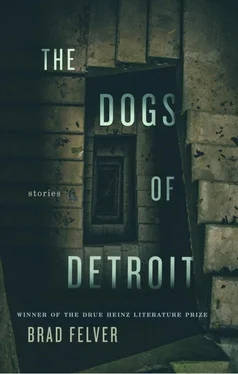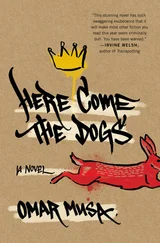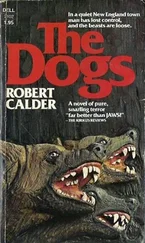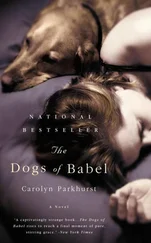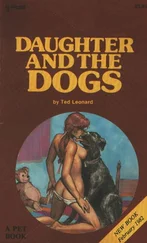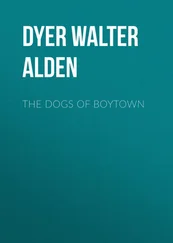In the middle of the floor sat a magnificent desk, wood still raw and unstained. Clean lines, trim like Gus himself. Not a trace of excess flourish to be seen. Solid, squared legs, tapered to a slender tip. Three legs only, always three legs, he said, again referencing the perfection of a Euclidean plane. Old-growth walnut, he went on, taking her hand and tracing it over the grain pattern, all harvested locally. He pointed out the dovetails in the lap drawer, the through-mortises on the legs. She felt she understood him better then, the artist lurking underneath those flannel shirts of his.
“It’s for your father,” he told her.
They had each other there on the desk. He was slow and deliberate, polite even in lovemaking, his callused hand never leaving the curve of her neck. It smelled of sawdust, and for the rest of her life, when she smelled that smell, flickers of arousal would warm her from the inside out.
A growing swell of energy between them, they each felt it, the way it lashed them together. Slowly they wormed themselves into each other’s lives, not always the grandest moments—holidays or great traumas—but the smaller, daily gestures: kissing with bad breath, boiling hot dogs for dinner, changing flat tires in the brutal Cleveland winter.
They talked about how happy they were as if afraid that they must decipher it daily, how astonishing it all was, or risk it diluting right in front of them.
“I don’t want to take your name,” Ruth said. “I’ve had this name all my life and I’m used to it now.”
“You don’t have to.”
“But what about our kids? It’ll be too confusing.”
“Your mother wouldn’t understand,” he said.
“Yes,” she said. “Her.” She looked out the window, squinting into the sun. “We both know I won’t hyphenate.”
“We could make a new name. Both of us.”
“Something fun?”
“Something tough.”
They each wrote down their choices. She chose Ivers . He chose Bazooka .
In the end, she took his name because they didn’t want to spend the rest of their lives explaining it at dinner parties.
Ruth miscarried deep into her second trimester. A problem with the umbilical cord. For a week they stayed in their little apartment, curtains drawn, the air thick like after rain. Sometimes she wanted to be close to him, nuzzling into his chest, and other times she just needed him not to look at her. These waves came suddenly, and he learned how to recognize them. He didn’t understand them, but he knew it wasn’t important that he did.
“I’m okay,” she insisted, “but I just can’t stop picturing the cord like a noose around his little neck.” For a long while she went back to the diaphragm without telling Gus. She was terrified of her own body and didn’t want him to know. Sex changed from something they did together into something that was done to her.
They spent weekends with his father on the farm and never told her parents at all. She took the rest of the semester off, technically to finish her dissertation, though she accomplished little. They adopted a dog, which generally brought more agony than joy. When it pooped on the carpet, Gus chased it around with a drywall hammer; when it ran away he stapled signs to telephone poles. He had wanted an Irish Setter, but Ruth wanted a Pomeranian. He joked with friends that they compromised by getting a Pomeranian.
A few months later they went out to dinner and drank too much wine. She laughed like a teenager and sat cross-legged in her chair. They tossed bits of uncooked macaroni into each other’s glasses and then apologized to their waiter. When dessert came she got quiet again as if some shadow had descended. She stared into her glass and picked at the polish on her forefinger. “I’m so, so sorry,” she said, and he knew then they would haul this on their backs for the rest of their lives.
Her father died in March, and his father died in June. They both realized then that the last traces of childhood were gone. She thought the wakes would be dramatically different, but they weren’t, hushed voices and hollow platitudes for rich people and poor people alike. She wasn’t terribly sad but had to pretend she was; he was devastated but had to act like he wasn’t. And so for several months it seemed as if they weren’t talking to each other so much as to the emissaries they sent out into the world.
One night she found him sitting on the toilet lid. The door was closed and the light was off, but she knew he was in there. “What are you doing?” she asked.
“I don’t know,” he said. “I guess I’m trying.”
She sat on the floor in front of him. The Pomeranian stood in the doorway, guarding them, like it knew things weren’t right.
“He told me once that your desks were his favorite things.” His father had never really said that to her, but she inferred a great deal from his long proud looks.
They writhed together there on the cold tile floor. He was manic, desperate, even a bit rough with her, which he never was before or after.
They named her Annabelle. They had never been so exhausted or so happy. Gus could scarcely bring himself to take on jobs that stole him away. Ruth officially abandoned her dissertation, all those years of work that suddenly seemed frivolous.
Gus built Annabelle a crib of cherry, with lovely tapered spindles and long finger joints. He was afraid of SIDS—it was all you ever saw on the local news—and so he often slept in the chair next to the crib. He strummed a toy ukulele for her. It wasn’t long before Annabelle learned how to smile. D minor and G were her favorite chords, and for hours he would play them, the D minor hovering like a Frisbee in flight, just out of reach, until he would finally resolve it with the G, and little Annabelle would smile and kick.
One evening when Gus was working late, Ruth was alone with Annabelle. They hadn’t eaten yet, and she was trying to apply for jobs. Their budget had become frighteningly thin. She stirred a pot on the stove and held Annabelle and scrolled through a list of academic positions, then secretarial ones. It was all too much. She wanted to scream and chuck rocks through the windows. Here she was: a mother, but was she anything else? Anything at all? Motherhood had seized her destiny while she had been too busy to notice. Fathers were somehow exempt from this fate. She hated Gus for being gone, hated herself for quitting her dissertation, hated Ohio most of all. Then Annabelle threw up on her shoulder, and before Ruth could clean it up or set her down, her daughter had started gumming up the vomit.
She told Gus about it when he got home.
“She ate her own puke?”
“Sorry. Jesus.”
“What color was the puke?”
“I don’t know. Purple maybe? I think we had plums earlier.” Gus held Annabelle up and looked at her. “Hi, there, my little puke-eater. Next time we could cook it for you first. That seems like our job. Your mother can do wonders with garlic and a little olive oil. You could have yourself a nice puke fritter!”
He gave her a bath and read her one book after another before bed. Ruth listened from outside the bedroom door as Gus made his outlandish voices and Annabelle giggled. It often worked this way: all day she fought off a manic craving for a break, only to find that when it finally came, there was little joy in it. By the time she got back to her job applications, the toyish strums of the ukulele pulsed out from the bedroom, washing over her like a sleeping serum.
Gus would sometimes lay playful traps for her, which made her feel young and loved:
“If you had to change one thing about me, what would it be?” he asked.
“That’s not fair.”
“That’s the point.”
She thought for a moment. “I’d make you twenty pounds heavier.”
Читать дальше
